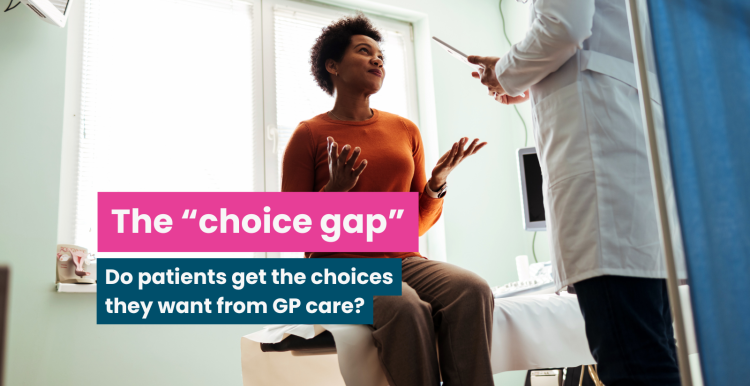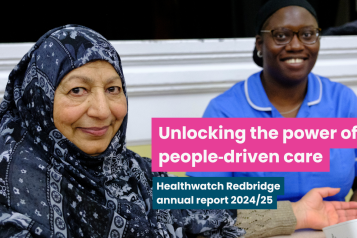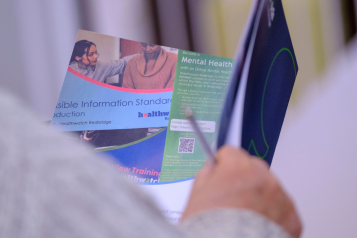The “choice gap”: do patients get the choices they want from GP care?

What choices do patients want when they book GP appointments? And are they getting those choices?
Alongside interviews conducted by local Healthwatch across England, and nationally representative polling, we recently spoke to local people to understand how much they value choice in their care. The research shows evidence of a “choice gap”, where people are not always getting the choices they want and may even be entitled to.
What did Healthwatch learn about GP appointments and patient choice?
People want more choice when booking GP appointments.
Organising appointments to work around their lives matters to people, with time of appointment, choice of booking method, appointment type (face-to-face versus remote), and health professional the most desired choices.
People do not always get the choices they have a right to.
The GP contract says that patients have the right to choose the method by which they directly book appointments. Yet under a third (30%) of people are always given a choice of booking method for appointments, and around one in six (16%) are never given this option.
Patients face a "choice gap".
We found gaps between how often people wanted particular choices and how often those choices were offered. For example, 68% of respondents told us they want a choice about when an appointment takes place always or most of the time. But only 49% told us they always or mostly get this choice.
That "choice gap" affects some groups more than others.
The "choice gap" is generally larger for older people, women, and those unable to work due to health issues or disability.
People often must ask for certain choices, rather than being offered them.
Nearly half (48%) of those who got a choice of a named healthcare professional told us they had to ask for the choice, compared to 40% who got the choice without asking. The same is true for requesting a longer appointment, which 47% got by asking for it, while 37% got it without having to ask.
What are Healthwatch recommending to help people get the choices they want?
GP services are the area of healthcare that we hear about the most, so making GP appointments work for patients would go a long way towards improving experiences and perceptions of the NHS.
Here’s what Healthwatch recommended to help:
Better monitoring of patient choice through the GP Patient Survey.
At the moment, the survey asks the public about choice of appointment location and time, enabling cross-referencing of these offers against other questions on public satisfaction. In future, the survey should ask about additional choice options, including choice of face-to-face appointments, and the type of professional delivering care.
Capturing patient choices at the point of GP registration.
GP surgeries should capture accessibility needs, chaperone preferences, and longer appointment times for those with multiple long-term conditions to help GP teams deliver what matters most to patients.
Embedding patient choice in all booking approaches.
When demand for GP appointments is high, triage is a vital tool to help GP teams manage demand. However, the systems used to triage must embed patient choice in their design. Where total triage is not used, people must be able to book appointments directly as far as possible.
Improving continuity of care for those who need it most.
External evidence is clear that people with multiple long-term conditions would particularly benefit from continuity of care. Our research adds that this would also benefit those unable to work due to illness or disability.
Offering patients 24-hour access to GP booking platforms.
The GP contract should require all GP teams to keep online booking platforms, such as eConsult, open 24 hours a day, seven days a week. As part of this process, those requiring urgent care must be signposted to NHS 111, 999, or A&E.
Download the report
Interested in learning more? You can read the full report below.
If you require this report in a different format, please contact Healthwatch by emailing enquires@healthwatch.co.uk or calling 03000 683 000


